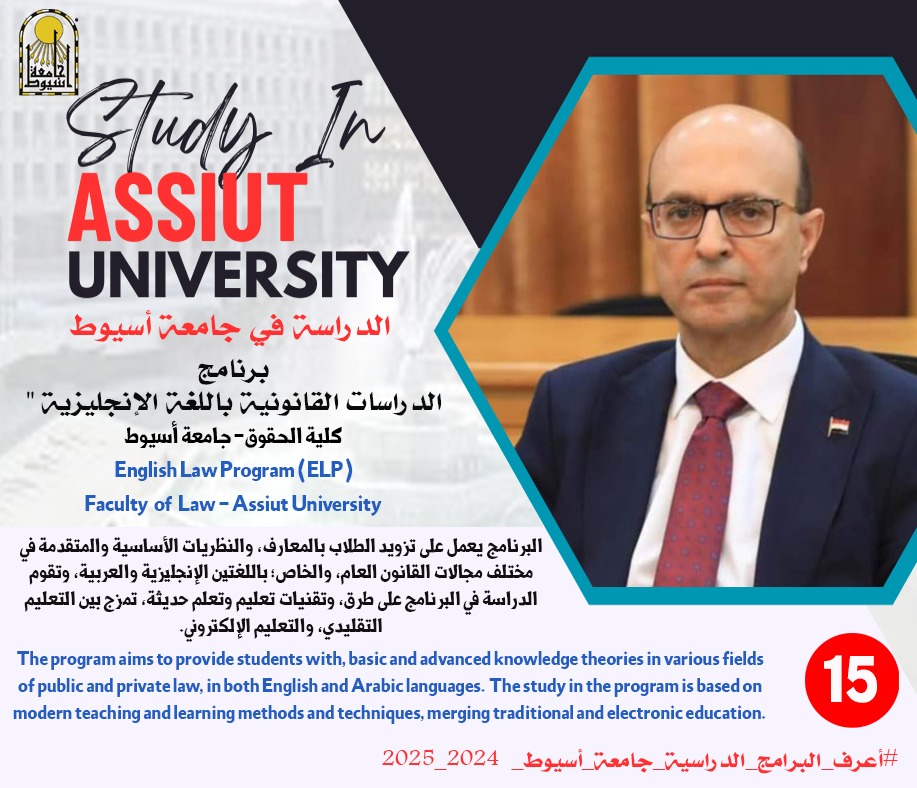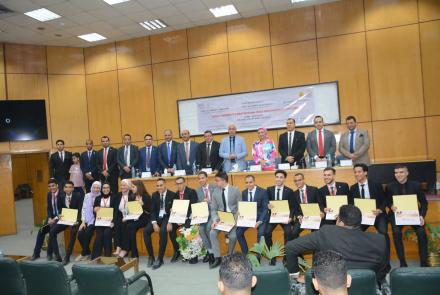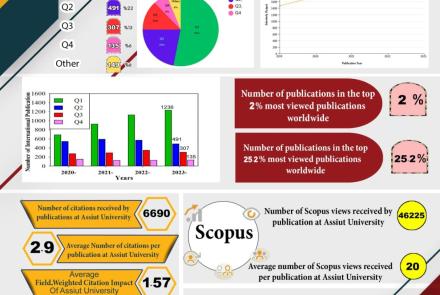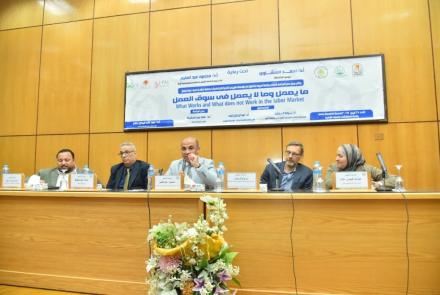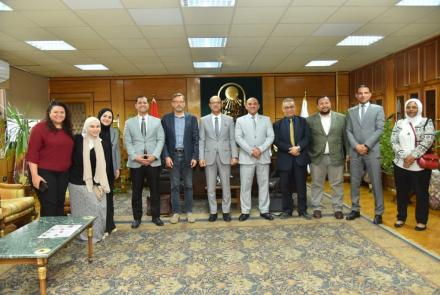Under the supervision of Prof. Ahmed El-Minshawy, the university president, Assiut University adopts distinctive educational programs for the academic year 2024/2025, based on accredited academic standards, quality criteria, and in line with future career prospects.
The English Law Program (ELP) presented by Assiut University's Faculty of Law aims to equip students with fundamental and advanced knowledge and theories in various areas of public and private law in both English and Arabic languages . This program is supervised by Prof. Ahmed Abdel Mawla, the vice president of the university for education and student affairs, Prof. Duweib Hussein Saber, the dean of the Faculty of Law, and Prof. Mohamed Abdellahim, the program coordinator.
The program aims to:
- Enhance students' practical and professional understanding of legal theories, as well as to develop their intellectual capabilities in the English language.
- It also aims to enable students to conduct legal research at the bachelor's level using sound scientific methodology in both English and Arabic languages.
- The program seeks to provide students with knowledge and understanding of basic concepts and rules of Egyptian law, comparative law, particularly Anglo-American legal systems, and to develop their cognitive skills related to linking laws used with legislative and jurisprudential trends of the Arabic, Latin, and Anglo-American legal schools.
- Additionally, it aims to enhance students' ability to analyze legal issues, use various information technologies and sources of knowledge, and draft legal memoranda, pleadings, and court judgments in both English and Arabic.
The program has a duration of 4 years based on the credit hour system, and it accepts Egyptian students who have completed their general secondary education, or its equivalent, from Egypt or abroad, based on their grades and according to the specified rules.
The English Law Program utilize some various educational tools and resources to achieve its objectives, including a comprehensive curriculum, attracting distinguished faculty members, utilizing diverse learning resources, and using the latest books and curricula in teaching. It also encourages research, projects, and case studies, and leverages the research of faculty members in developing course content.
Additionally, the program utilizes modern teaching and learning methods that merging traditional and e-learning, and seeks to strengthen ties with the professional environment through graduates, judicial bodies, law offices, legal departments in various organizations, government agencies, and private enterprises.

